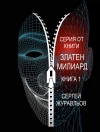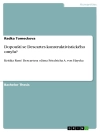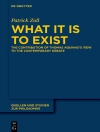This book explores how the trans phenomenon can challenge the existing concept of the Self and its nature. The catalyst is Moore’s Paradox: can a trans person coherently state ‘I am a girl but I don’t believe that’? More deeply, three fundamental philosophical questions arise, of ontological, epistemological, and conceptual significance: what Self understands that the natal-gender is ‘wrong’? How does the trans person know that the natal-gender is ‘wrong’ and what counts as evidence? And finally, how does this effect the concept of Self itself?
Seeking answers, Brakel considers various theories of the Self, including classical accounts, modern views, and models developed by selected gender theorists. The book then takes a biological turn, first developing an evolutionary proper-function analysis of gender and trans-gender and subsequently proposing the possibility of a new ontological phenotype. With a review of cutting-edge neuroscientificresearch conducted over the last twenty-five years, Brakel propels this timely and important investigation toward the future, using experimental philosophy empirical studies adapted from classic thought experiments on the nature of the Self.
Inhoudsopgave
1. Introduction.-
Section One: Extant Philosophical Views of Self .- 2. Four Classical Philosophical Views of Self.- 3. Modern Philosophical Views of Self.- 4. Selected Contemporary Gender-Theorists’ Views: Where is the Self? 5.-
Section Two: Biological Considerations. – 6. A Proper-Function Account of Gender and Trans-Gender: From Philosophical Views to Biological Matters.- 7. Brain Studies: Trans Persons and Fish.- 8.
Section Three: Future Investigations .- 9. Experimental Philosophy (X-Phi) Studies.- 10. Summary and Conclusions.
Over de auteur
Linda A.W. Brakel, M.D. is Adjunct Associate Professor of Psychiatry and Faculty Research Associate in Philosophy at the University of Michigan, USA.












